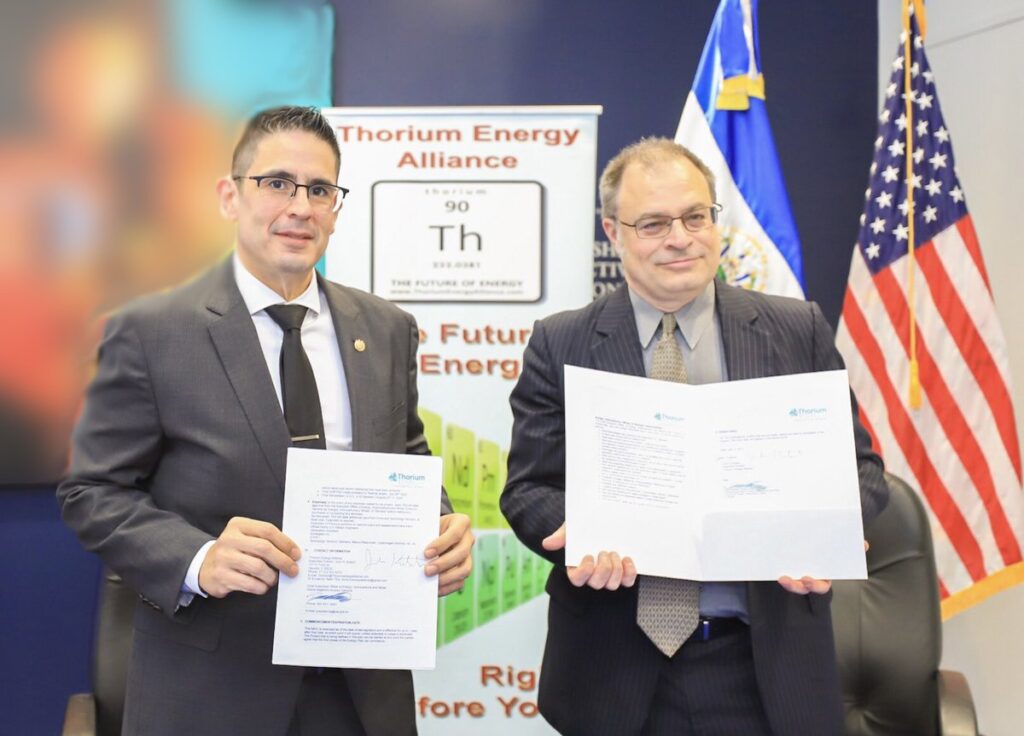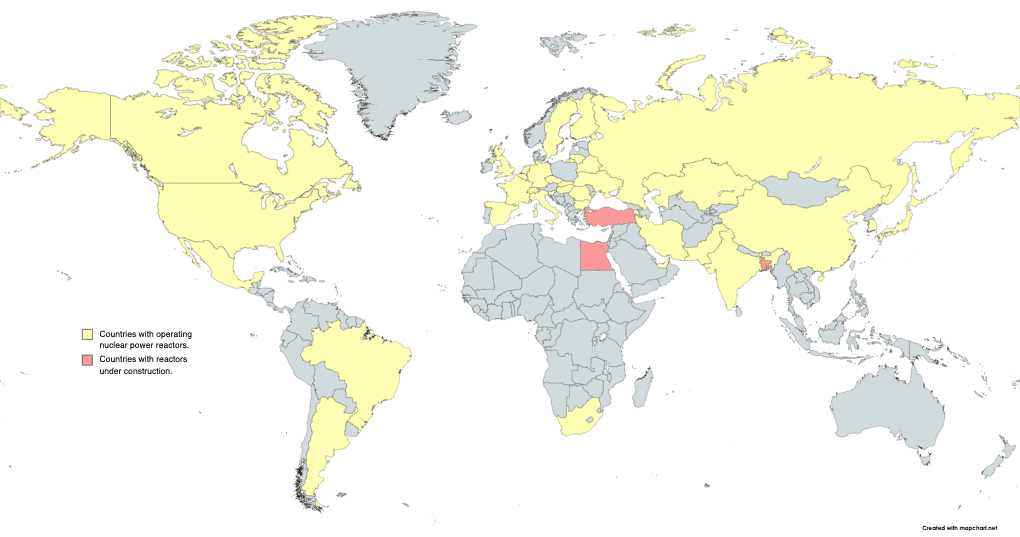El Salvador Sets Sights on Joining the ‘Nuclear Power Club’

El Salvador is taking steps to add nuclear power to the country’s energy mix, as the nation of about 6.5 million people looks to diversify its electric power generation fleet.
In support of that effort, the government of El Salvador and the Thorium Energy Alliance, a Harvard, Illinois–based non-profit advocacy group that endorses thorium-fueled reactors, signed a memorandum of understanding (MOU) to promote the “El Salvador Energy Bridge” plan. The MOU was signed by Daniel Alvarez, El Salvador’s director general of Energy, Hydrocarbons, and Mines (DGEHM), and John Kutsch, executive director of the Thorium Energy Alliance, at the Embassy of El Salvador in Washington, D.C. (Figure 1), with Ambassador Milena Mayorga present to witness the event.

El Salvador has historically gotten much of its power from hydro and geothermal resources, according to International Energy Agency (IEA) data. In 2020, the most recent numbers available on the IEA’s website, hydropower accounted for about 32.8% of the electricity generation in El Salvador. Geothermal was second, supplying 24.6% of the mix, while oil (15.5%), solar PV (14.3%), and biofuels (12.9%) rounded out the list. El Salvador’s total generation in 2020 was about 6.321 TWh.
The purpose of the MOU is to “formally establish the framework for cooperation between Thorium Energy Alliance and the DGEHM to develop a comprehensive and strategic plan to deploy, in an advanced and safe manner, energy generation through thorium-powered reactors and thermal energy storage systems,” the Thorium Energy Alliance said in a press release.
“This is not just a deep dive into technologies and rollout issues, and a white paper proposal, this is something that El Salvador is dedicated to making happen,” Kutsch said in a presentation given at the signing ceremony.
“Through this effort, we are fulfilling President Nayib Bukele’s mandate to consolidate the diversification strategy of our energy matrix to improve the economy and well-being of our citizens,” Mayorga said.
There are 35 countries that currently have operating nuclear power reactors, according to the International Atomic Energy Agency (IAEA), and three more that will enter “the nuclear power club” when reactors presently under construction come online (Figure 2). In the IAEA’s Energy, Electricity and Nuclear Power Estimates for the Period up to 2050, a publication the agency released in September 2022, global nuclear capacity for electricity generation in the “high-case scenario” was projected to more than double to 873 GW by 2050, compared with current levels of about 390 GW.

“Driven by the impacts of climate change and the energy crisis, governments are reconsidering their portfolios in favour of nuclear power,” IAEA Director General Rafael Mariano Grossi said in a statement issued last fall with the release of the 137-page report.
“The leadership of El Salvador will vault their country up the development ladder to become the Dubai of Central America,” Kutsch said. “San Salvador follows the lead of the United Arab Emirates, who committed to becoming a nation of the future 12 years ago and has built four merchant-class energy systems with over 5,300 MW of capacity in just over 10 years—on time and on budget. They proved that it could be done.”
El Salvador obviously still has a lot of work to do before breaking ground on a new reactor, but the MOU is among the initial steps necessary to get the wheels in motion. “I am pleased to announce the launch of this innovative project that will revolutionize the energy landscape of El Salvador,” Alvarez said. “I want to thank Thorium Energy Alliance for their dedicated work in implementing a safe nuclear future for El Salvador. Their experience and commitment have been invaluable in making this initiative a reality.”
Among the goals of the Thorium Energy Alliance are to restart a homogeneous fuels research reactor program, and commercialize the molten salt reactor and the supply chain infrastructure behind it. The group calls itself “an education-focused organization composed of scientists and engineers committed to reducing the cost of energy, increasing the availability of critical materials, and protecting the environment.” It says thorium used in advanced reactors is a safe, cost-effective, and efficient alternative to traditional nuclear fuels.
—Aaron Larson is POWER’s executive editor (@AaronL_Power, @POWERmagazine).
The post El Salvador Sets Sights on Joining the ‘Nuclear Power Club’ appeared first on POWER Magazine.